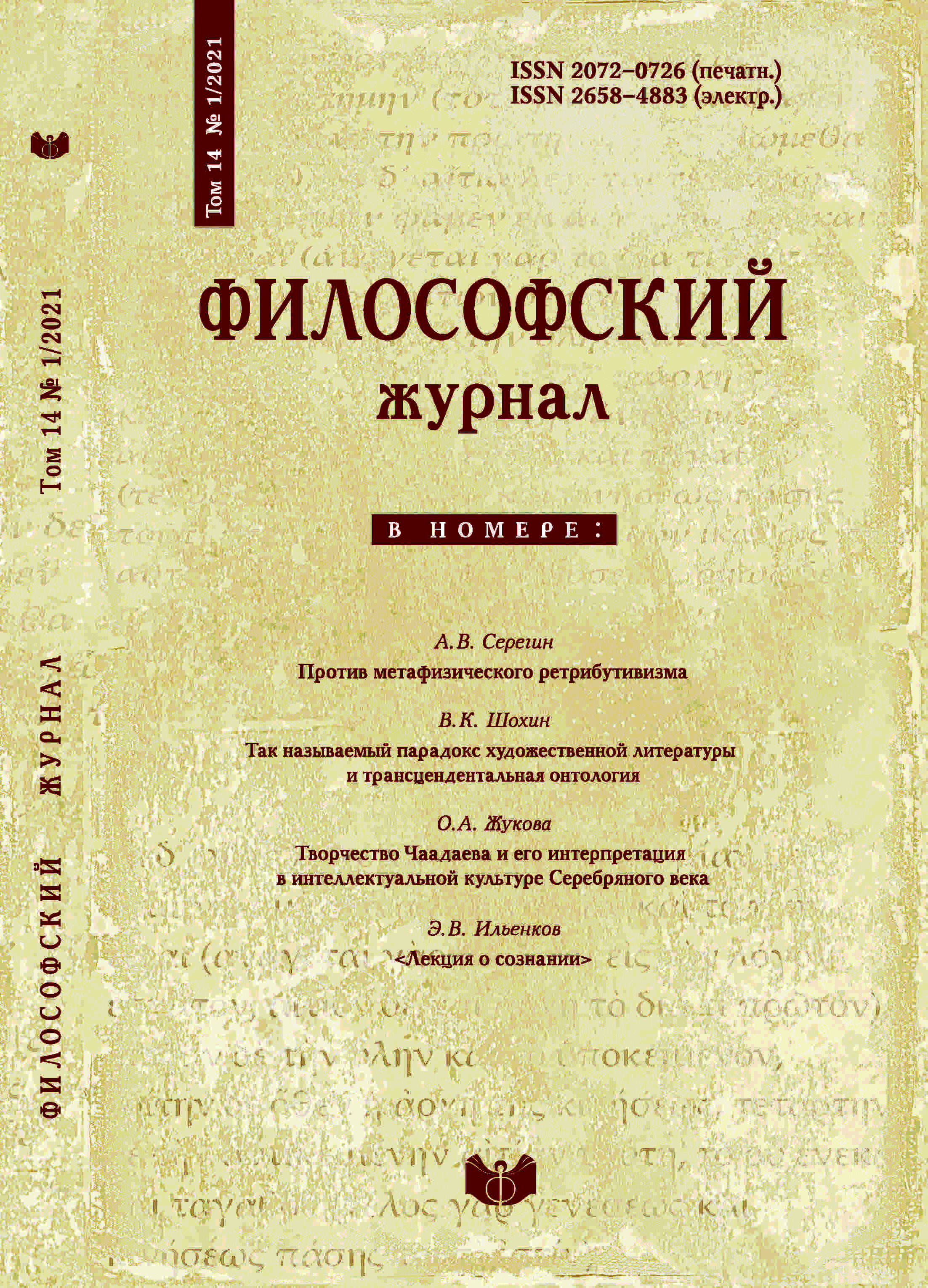E. N. Trubetskoy and his dispute about theocracywith Vl. S. Solovyov
DOI:
https://doi.org/10.21146/2072-0726-2021-14-1-84-96Keywords:
free theocracy, Christian unity, the Holy See, ecumenism, state and church, freedomAbstract
The paper examines E.N. Trubetskoy’s reception of Vl.S. Solovyov’s theocratic project. In addition, the author establishes the points of convergence and divergence of the two Russian religious thinkers on the nature and the possible ways of Christian unity. The two philosophers were close friends and in his texts devoted to Solovyov Trubetskoy repeatedly emphasized the influence of his friend’s ideas on his own philosophical constructions. Nevertheless, Trubetskoy took those ideas critically. To prepare his answer to Solovyov’s arguments Trubetskoy need the years between the time of his master’s thesis “The world outlook of Saint Augustine” until the time of his doctoral dissertation. “The world outlook of Vl.S. Solovyov” became one of his fundamental works. It is in this work that Trubetskoy’s key arguments against Solovyov’s “free theocracy” project are presented. The author shows that despite adopting Solovyov’s views on Christian unity Trubetskoy did not accept the ways by which Solovyov proposed to achieve it. Trubetskoy argues with the Solovyov of the 1880s, contrasting Solovyov’s ideas of that period with his later ideas and emphasizing that Solovyov’s key work on the topic was “War, Progress and the End of World History, Including a Short Tale of the Antichrist”. The paper also emphasizes that theocracy becomes one of the principal topics for Trubetskoy. In the process of analyzing Solovyov’s project of a “free theocracy” and studying the historical context in which the theocratic idea had been formed in the Western tradition Trubetskoy formulates his principled views on the relationship between the church and the state and justifies the need for their separation.






